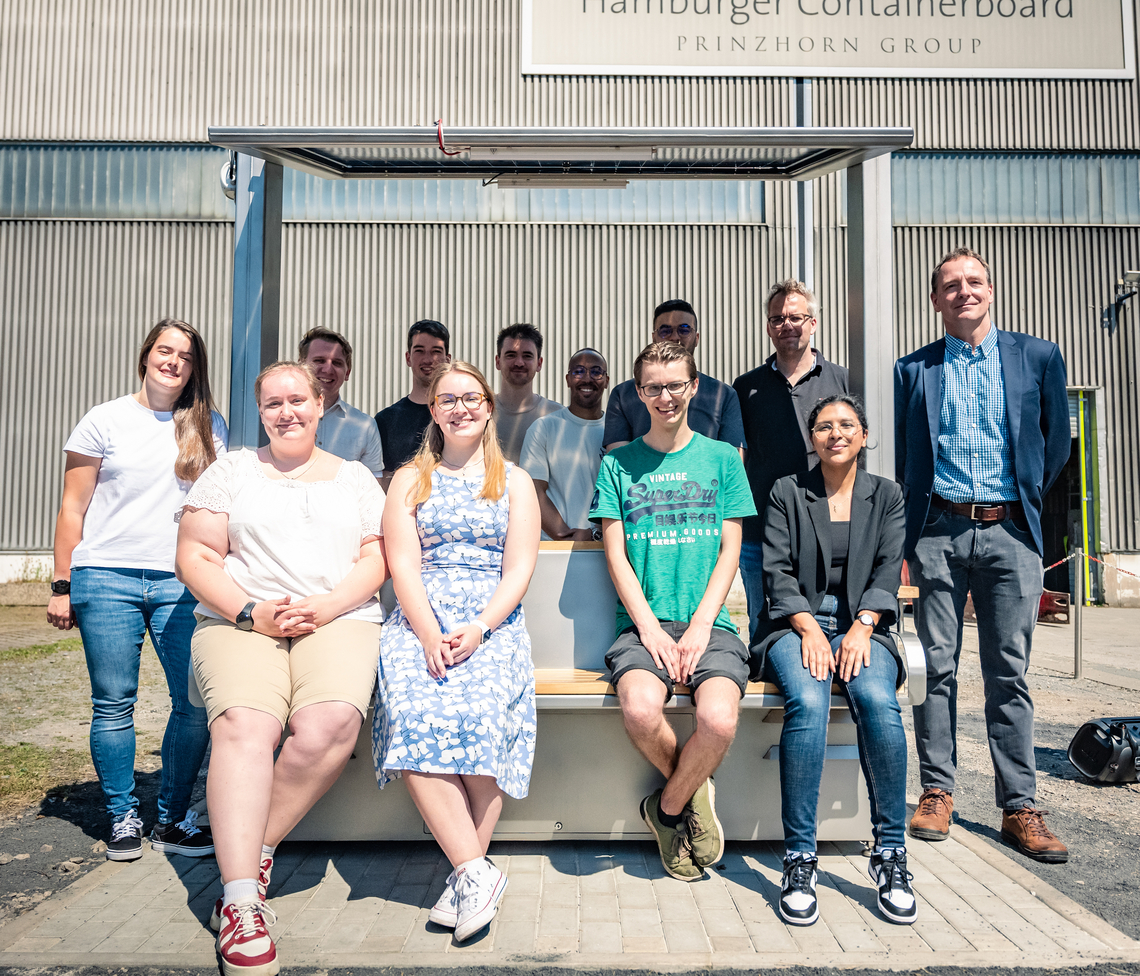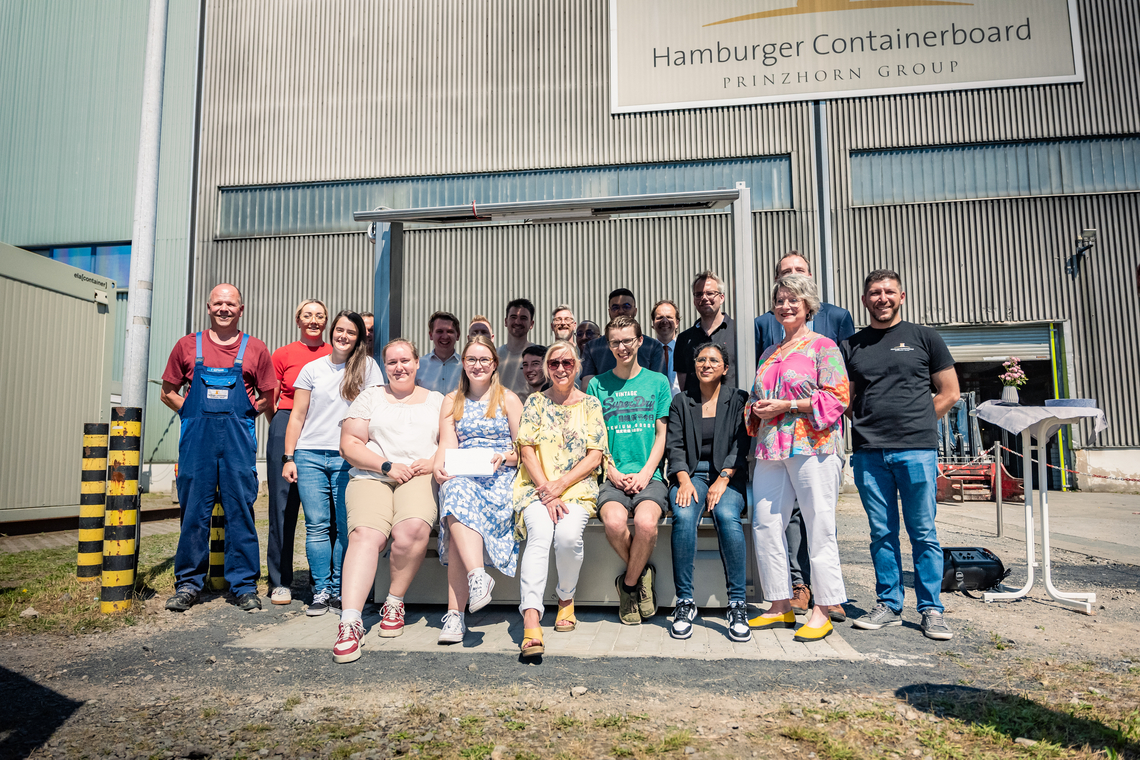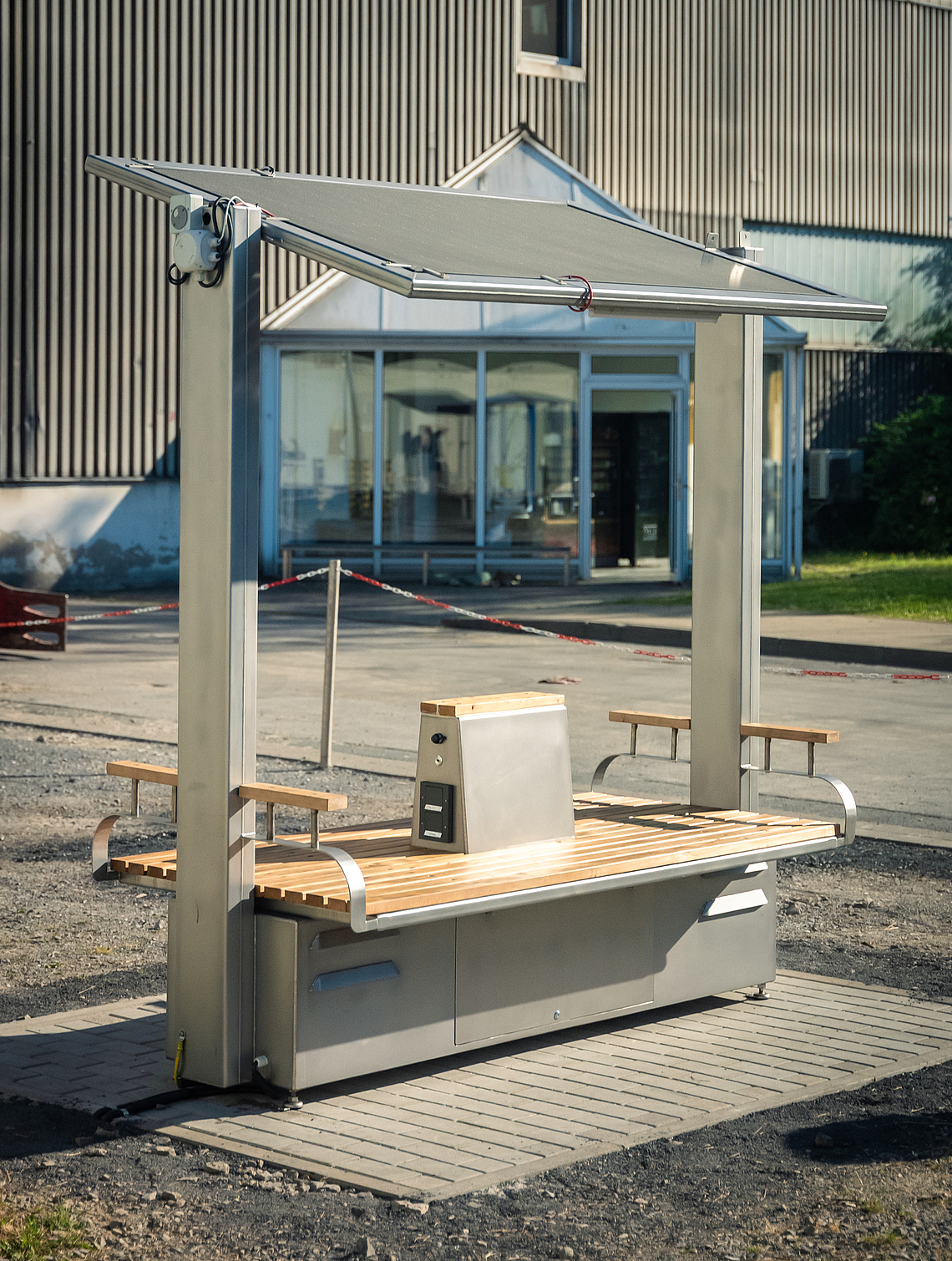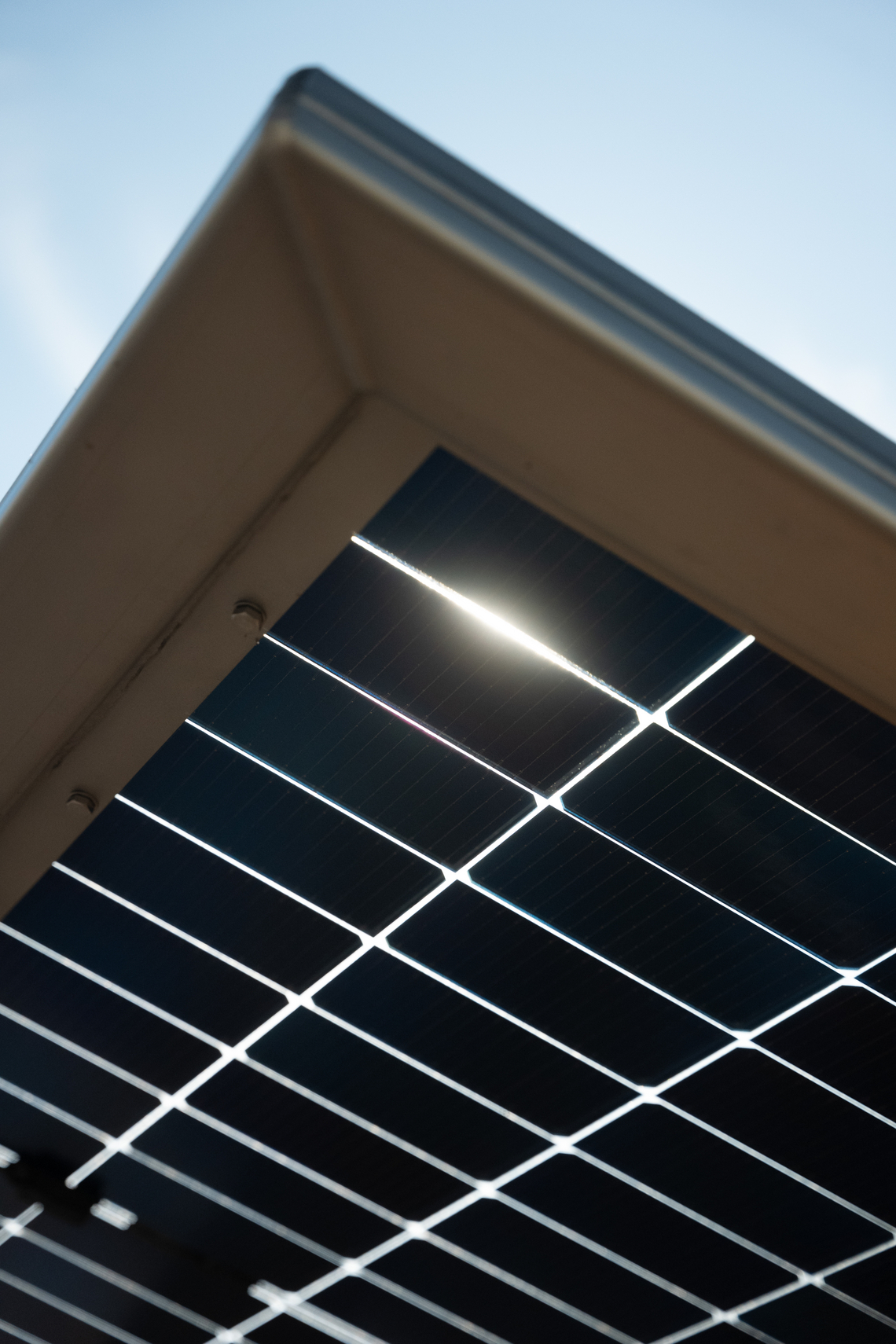The solar bench was created as part of a course on solar technology and renewable energies during the winter semester 23/24. Students from the Westphalian University of Applied Sciences played a key role in the technical planning and implementation. They carried out feasibility studies, simulated the energy flow in different weather conditions, created 3D-CAD drawings and prototypes and supervised the installation. This intensive collaboration enabled the students to gain practical experience and apply their theoretical knowledge.
Interested? Watch the video here: Solarbench Gelsenkirchen
Hamburger Rieger supported the project financially and made the site available for the installation of the solar bench. Managing Director Marcel Laermann emphasized the importance of the project as an initial spark for future collaborations: "The successful implementation of this project opens doors for future collaborations between the company and the university. Further sustainable projects are planned that offer both ecological and social added value. The solar bench could also serve as a model for similar installations in other public areas in order to further promote the use of renewable energies."
The solar bench in Gelsenkirchen therefore not only stands for technological innovation, but also for a successful example of how education and industry can work together to contribute to sustainable development. This type of project strengthens the link between theory and practice and helps to ensure that future specialists are optimally prepared for the requirements of industry. At the same time, it makes an important contribution to sustainability and climate neutrality that could radiate far beyond the city's borders.





